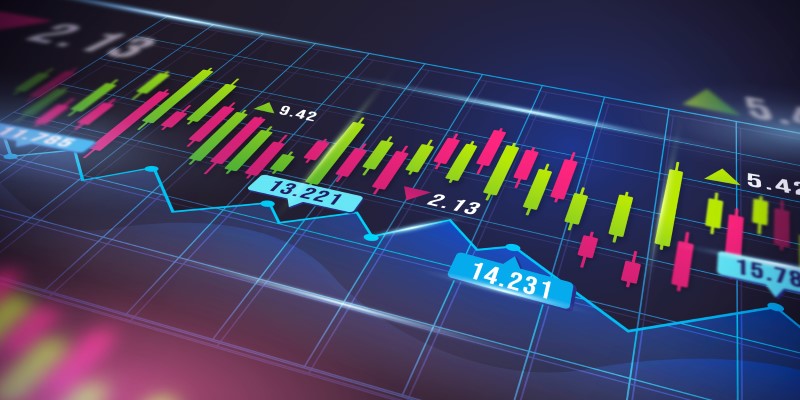Pros and Cons of Buying Individual Stocks
Susan Kelly
Nov 28, 2023
If you've got enough money to invest, are okay with taking some risks, and want to be more hands-on with your investments, buying individual stocks could be a good idea. It has perks like managing taxes, customizing your investments, and potential for growth in both the stock value and dividends.
But it's crucial to be aware of the risks and keep your expectations realistic. Let's break down the advantages and disadvantages of individual stocks to help you decide if it's the right move for you. Ready to dive in?
What are Individual Stocks?
When you buy individual stocks, you're basically becoming a part-owner of a company. If you buy 100 shares, that means you own a bit of that company. Companies decide to sell these shares to the public when they go to the public, and they use the money raised to help them start, grow, or expand. Once you own shares, you can sell them to others online or on a stock exchange, usually with the help of stockbrokers.
Now, there are two ways you can make money from these stock investments. One way is if the stock's price goes up over time, and the other is through bonuses called dividends. Dividends are like a share of the company's profits that they give to their shareholders. So, it's kind of like getting a piece of the company's success.
Pros of Buying Individual Stocks

Here are some of the advantages of buying individual stocks you should consider before making the final call.
Earn Money Through Bonuses
Owning stocks can make you money in two main ways: through growth and dividends. First, you can buy stocks when they're cheaper and sell them when their value goes up—that's called growth. Some people like to keep stocks for a long time, thinking months or even years, while others, like day traders, buy and sell stocks really quickly, sometimes in just hours or minutes.
Now, the cool thing about dividend-paying stocks is that they give you money regularly without you having to sell any of your shares. Some successful companies share a part of their profits with their shareholders every month. So, you can make money while still holding onto your stocks. It's like getting a bonus from the company just for being their shareholder.
No Risk of Fee Management
When you own mutual funds or exchange-traded funds (ETFs), you have to pay fees to the folks managing them, and that cuts into the money you make. In 2020, the average cost for managing equity mutual funds was about 0.50%, but some index funds let you pay way less, like 0.04%.
Even though it might not sound like a lot, these fees can really add up and eat into your profits. Let's say you're saving for retirement and investing for 30 years with a 10% return each year. If you choose individual stocks instead, you don't have to pay these management fees, so you get to keep more of your money. But, of course, it also means you take on all the risks.
More Dominance Over Investment
When you put your money into funds, you don't get to choose the specific companies the funds invest in. You have to go along with what the fund managers decide, following the rules of the fund. Sometimes, you might not even know all the details about which stocks the fund holds.
On the other hand, when you invest in individual stocks, you have complete control. It's up to you to figure out which stocks you want, how much money to put into each company, and when to buy or sell your shares. Basically, you're the boss of your own investment choices.
Cons of Buying Individual Stocks
Here are some of the disadvantages of buying individual stocks you should consider before making any final decision.
Lack of Variety
Getting enough diversity with individual stocks is tough. To be really well-diversified, experts say you need between thirty to a hundred different stocks. But keeping track of so many stocks can be a real hassle, and it can cost a lot. Imagine having to spend tens of thousands of dollars just to buy one share of each company you want to invest in unless you can buy fractions of shares.
High Risk of Volatility
Buying individual stocks comes with more risk because their prices can go up and down a lot. Here's an example: In February 2022, Meta Inc. (formerly Facebook) had the biggest one-day drop in stock market history. In just one day, the company's value went from $230 billion to $660 billion because it lost a lot of active users.
If you only invest in stocks and the companies you pick don't do well, you could lose a big chunk of your money—or even all of it—pretty quickly. For instance, if you had Meta stock, you would have lost almost 30% of your money in just one day.
What are the Alternatives to Individual Stocks?

You have more choices if you wish to engage in the market for shares but are concerned about the danger and volatility of individual stocks:
Investment Mutual Funds
When you invest in mutual funds, you're pooling your money with many other investors. The fund uses that money to buy a mix of stocks, bonds, and other investments. Mutual funds are managed by professionals, giving you quick diversification—you're investing in many companies at once when you buy a share in a mutual fund.
Funds by Index
Now, there's a type called index funds, which aim to match the performance of big stock market indexes like the S&P 500. They might have a bunch of companies from the index or all of them. Index funds cover various sectors, like emerging markets, big domestic companies, and safe bonds.
Final Thoughts!
If you want to buy individual stocks, start by setting up an investment account if you don't have one. But, before diving in, make a plan and think carefully before selling your stocks if the market goes down (which it will at times). Take a look at this article to weigh the pros and cons of individual stocks before making any final decisions. Ready to explore the world of investing in stocks?







